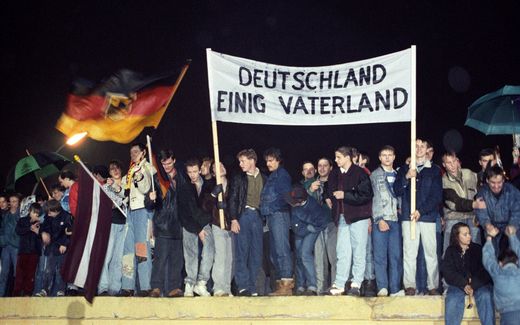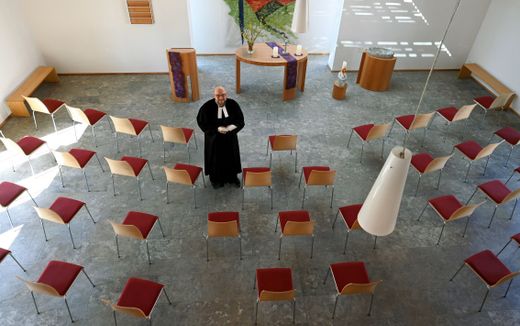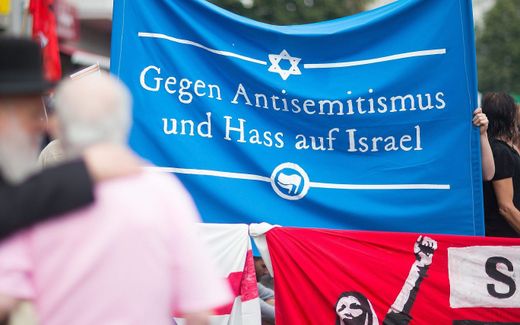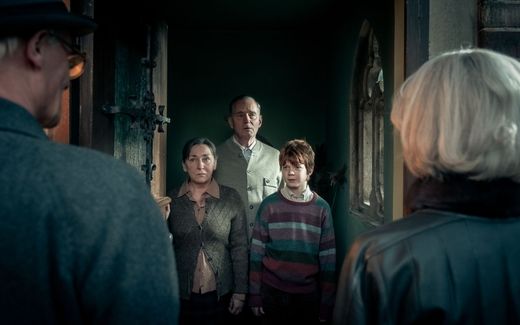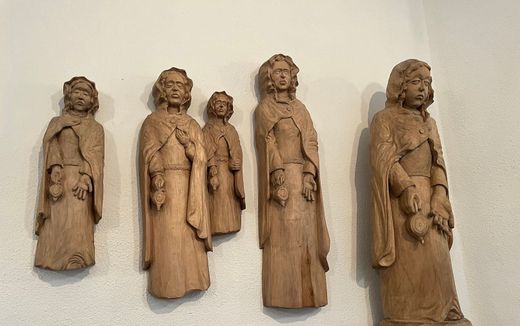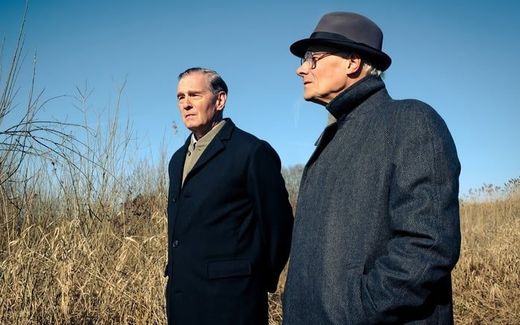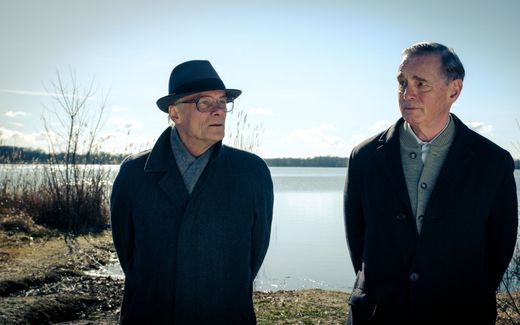How to look back with forgiveness at the GDR's injustice
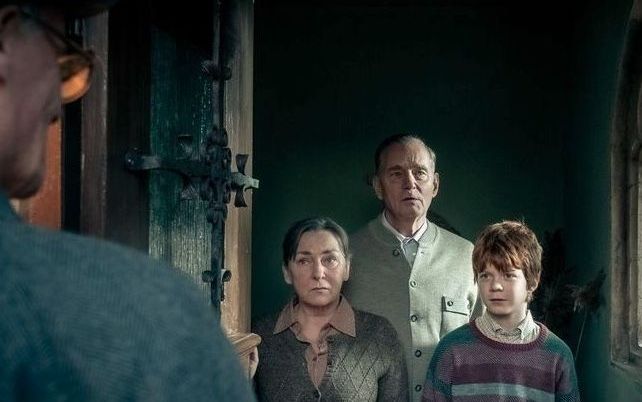
Kornelius in the door with his parents, with Mr Honecker waiting outside. Still from the film. Photo ZDF
Central Europe
Yes, the state was afraid for the church. But no, living as a Christian was not impossible in the Socialist Eastern Germany. “From my father, I have never heard bitter things about other people.”
Stay up to date with Christian news in Europe? Sign up for CNE's newsletter.
Kornelius Holmer was only 13 years old when the Berlin Wall came down. He lived in the eastern GDR (German Democratic Republic) but saw it happen from the West. At the time, his family had been there for a few days because his grandmother had died and was buried.

Together with some relatives, Kornelius had gone to Recklinghausen (near the Dutch border) by train. “On the way to West Berlin, we entered the train at Friedrichstrasse station in Berlin. There, the police boarded the train with dogs. When we returned a few days later, the border police didn’t even look at our visa. Things had changed very fast.”
The Holmer family had noticed all this from Recklinghausen. After the funeral on November 9th 1989, father Uwe Holmer switched on the television for the Heute news program. “As usual. But what we saw was surreal: The border had been opened.” Kornelius had already noticed that things were different during the last months before the Wall came down. In August of 1989, his older brother had gone to the West through Hungary. He had left the closed country of Eastern Germany. “I was convinced that we would not meet anymore until retirement.”
The family returned to Lobetal, a village near Berlin, in a different world. “For us, it was a day of great joy. And it still is”, says Mr Holmer, speaking in a Zoom call this week from the pastor’s house in Zapfendorf in the southern German state of Bavaria.
Synagogues
In the region where he lives, there is no special commemoration of the events that happened 35 years ago on the 9th of November, he says. However, a group of twenty churches in the area had an official gathering in connection with the Pogrom Night in 1938, when the synagogues were set on fire and other Jewish property was destroyed. That was on the 9th of November, too. “When I go there, I have the Berlin Wall in the back of my head. And, of course, as a friend of the Jewish nation, I pray for the people of God, too.”
On the 3rd of October, on the Day of the German Unity, he was invited to speak in a church in a small village along the border.
Looking back, Holmer feels that the memory of the GDR era is still very much present. “I realised that when a German TV station made a film about Honecker a few years ago. The former head of state of the GDR and his wife were my parents’ guests after the fall of the GDR for ten weeks. All other locations were seen as unsafe for them. There was a strong resentment against the GDR leadership. When that film was produced, many things came back in my mind again.”
Central in his memories is the “good family home” where he grew up as the youngest in a family of ten. “I am used to an environment where I am never the only person. I am used to sharing with others.”
All of his brothers and sisters have large families, he says. “If all the grandchildren had stayed alive, my father would have had fifty grandchildren when he died. That is an average of five per family – untypical for a German family.”
They lived near Berlin; that was a privilege. “Once or twice a year, there were cornflakes. The rest of the GDR did not have that. But for the rest, it was a Spartan life with few luxuries.”
Another privilege was that they belonged to a church. “The state gave some freedoms to the church. People who sought freedom against the state came to the church. Therefore, it was not strange that the revolution against the GDR started in the church.”
In big cities like Berlin and Leipzig, churches were known for their Friedensgebete, peaceful prayers and small demonstrations against the regime. That was different in Lobetal, where the Holmers lived. “My father had the leadership over a centre for 1500 disabled people. Sometimes people said perhaps critical things, but the church was not political there.”His father, pastor Uwe Holmer, belonged to the Evangelical part of the Lutheran Church. Also, in Eastern Germany, this was a minority. “The church valued some pietism, though. And organisations like the German Evangelical Alliance also had some influence in the GDR.”

Uwe Holmer tried to keep politics at a distance. “One time, some officials approached him to ask whether he would be willing to become mayor of Lobetal. The only condition was that he entered the SED party. My father refused. When he heard that someone else would do it, my father conceded that he entered the CDU party. Of course, this party was a sort of fake opposition monitored by the SED. However, it was still possible to express light criticism of the regime there. My father held a speech on Liberation Day in May 1985. He said that he regretted that Germany was divided and that he could not visit his family. As far as I know, that was tolerated.”
Holmer’s father is still a great example to him, he says. “His only goal was living as a Christian. When father Holmer applied to see his Stasi files, he deliberated with himself beforehand that he would forgive anyone who had wronged him. And yes, some good acquaintances had spied on him. But somebody else had praised our family to the Stasi, which was a surprise. I have never heard bitter things about other people from him.”
Against the same background, Uwe Holmer accepted that the Honeckers stayed with them for ten weeks, even though they had persecuted him and his family during the GDR period. “This example can still help us. We are not called to be for or against Trump or Harris. We are called to live the Gospel. That has influenced all of us, I think. Three of my older brothers are pastors, too, and we all try to live an authentic Christian life.”
Related Articles


